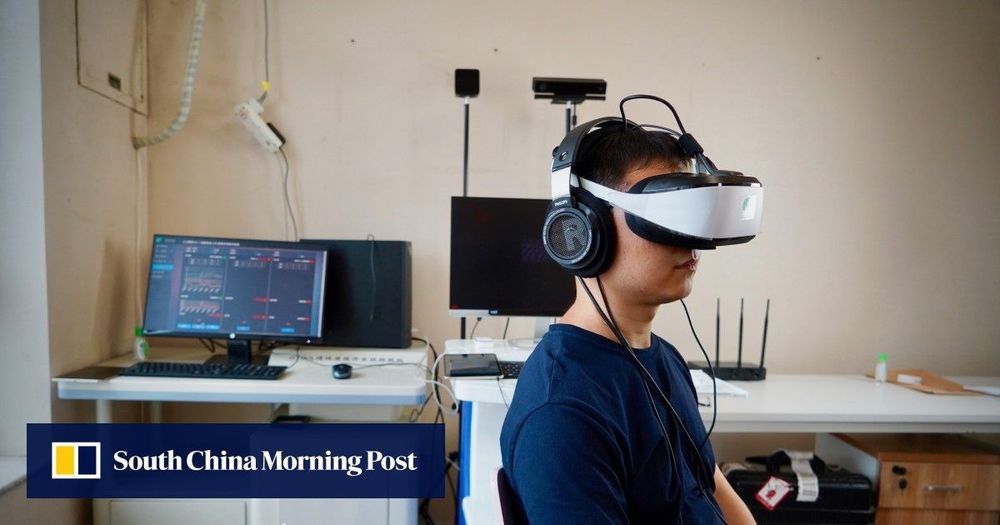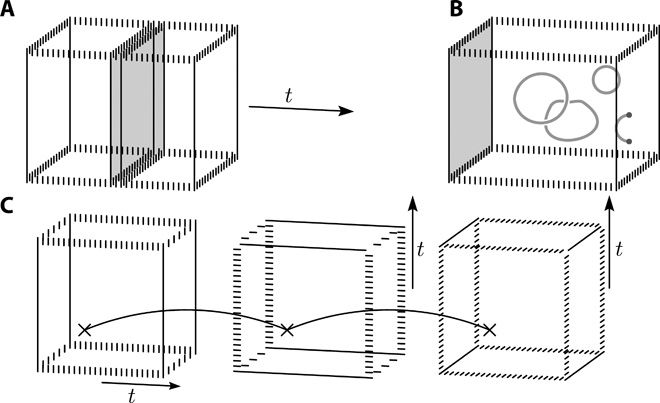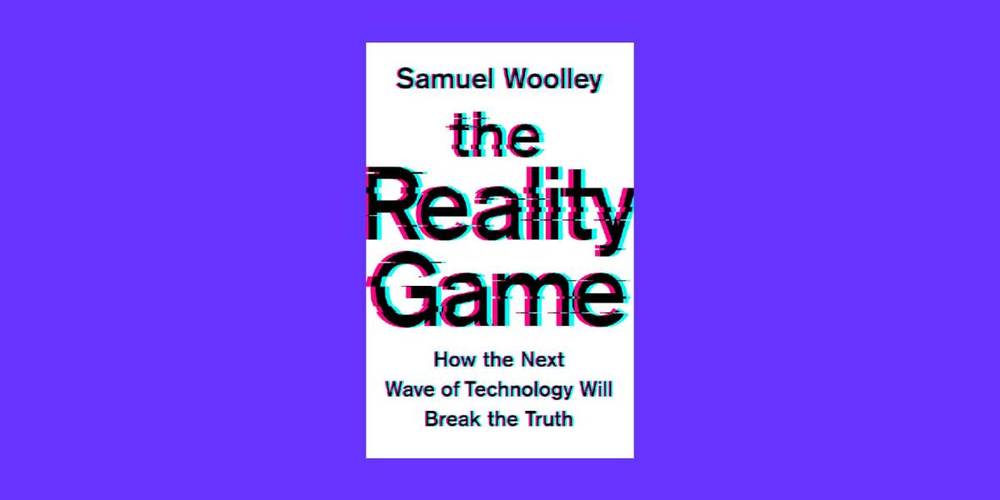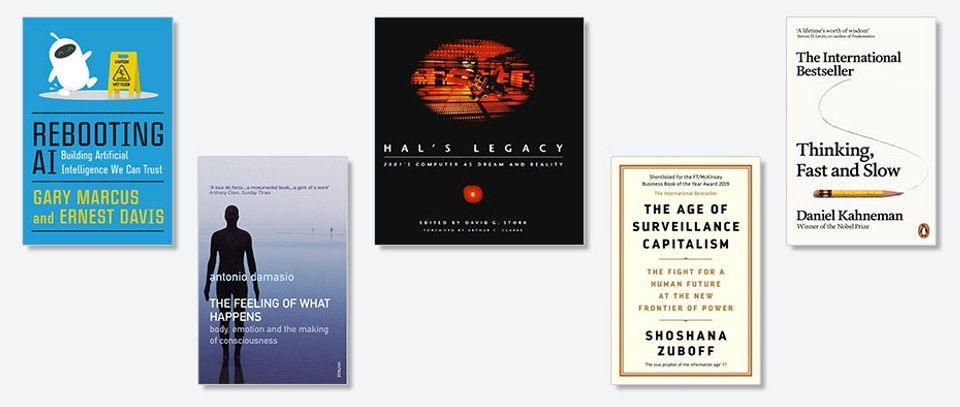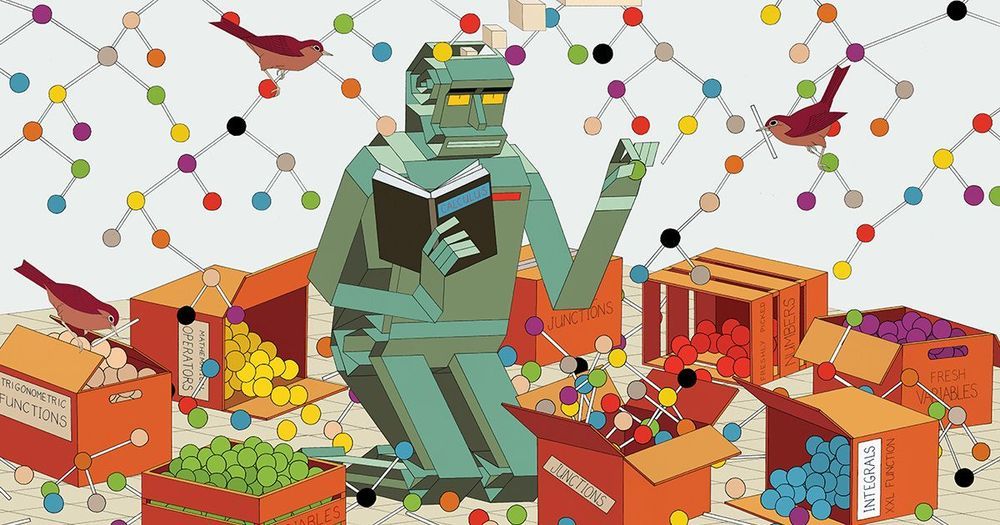Beijing start-up develops AI algorithm to determine how prone the VR participant is to drug use by tracking their pulse, brainwaves and electrical conductance of the skin.
Category: information science – Page 238
Zhou Yi was terrible at math. He risked never getting into college. Then a company called Squirrel AI came to his middle school in Hangzhou, China, promising personalized tutoring. He had tried tutoring services before, but this one was different: instead of a human teacher, an AI algorithm would curate his lessons. The 13-year-old decided to give it a try. By the end of the semester, his test scores had risen from 50% to 62.5%. Two years later, he scored an 85% on his final middle school exam.
“I used to think math was terrifying,” he says. “But through tutoring, I realized it really isn’t that hard. It helped me take the first step down a different path.”
Fault-tolerant logic gates will consume a large proportion of the resources of a two-dimensional quantum computing architecture. Here we show how to perform a fault-tolerant non-Clifford gate with the surface code; a quantum error-correcting code now under intensive development. This alleviates the need for distillation or higher-dimensional components to complete a universal gate set. The operation uses both local transversal gates and code deformations over a time that scales with the size of the qubit array. An important component of the gate is a just-in-time decoder. These decoding algorithms allow us to draw upon the advantages of three-dimensional models using only a two-dimensional array of live qubits. Our gate is completed using parity checks of weight no greater than four. We therefore expect it to be amenable with near-future technology. As the gate circumvents the need for magic-state distillation, it may reduce the resource overhead of surface-code quantum computation considerably.
A scalable quantum computer is expected to solve difficult problems that are intractable with classical technology. Scaling such a machine to a useful size will necessarily require fault-tolerant components that protect quantum information as the data is processed (1–4). If we are to see the realization of a quantum computer, its design must respect the constraints of the quantum architecture that can be prepared in the laboratory. In many cases, for instance, superconducting qubits (5–7), this restricts us to two-dimensional architectures.
Leading candidate models for fault-tolerant quantum computation are based on the surface code (3, 8) due to its high threshold (9) and multitude of ways of performing Clifford gates (10). Universal quantum computation is possible if this gate set is supplemented by a non-Clifford gate. Among the most feasible approaches to realize a non-Clifford gate is by the use of magic-state distillation (11). However, this is somewhat prohibitive as a large fraction of the resources of a quantum computer will be expended by these protocols (12, 13).
High-quality data is the fuel that powers AI algorithms. Without a continual flow of labeled data, bottlenecks can occur and the algorithm will slowly get worse and add risk to the system.
It’s why labeled data is so critical for companies like Zoox, Cruise and Waymo, which use it to train machine learning models to develop and deploy autonomous vehicles. That need is what led to the creation of Scale AI, a startup that uses software and people to process and label image, lidar and map data for companies building machine learning algorithms. Companies working on autonomous vehicle technology make up a large swath of Scale’s customer base, although its platform is also used by Airbnb, Pinterest and OpenAI, among others.
The COVID-19 pandemic has slowed, or even halted, that flow of data as AV companies suspended testing on public roads — the means of collecting billions of images. Scale is hoping to turn the tap back on, and for free.
Any time you log on to Twitter and look at a popular post, you’re likely to find bot accounts liking or commenting on it. Clicking through and you can see they’ve tweeted many times, often in a short time span. Sometimes their posts are selling junk or spreading digital viruses. Other accounts, especially the bots that post garbled vitriol in response to particular news articles or official statements, are entirely political.
It’s easy to assume this entire phenomenon is powered by advanced computer science. Indeed, I’ve talked to many people who think machine learning algorithms driven by machine learning or artificial intelligence are giving political bots the ability to learn from their surroundings and interact with people in a sophisticated way.
During events in which researchers now believe political bots and disinformation played a key role—the Brexit referendum, the Trump-Clinton contest in 2016, the Crimea crisis—there is a widespread belief that smart AI tools allowed computers to pose as humans and help manipulate the public conversation.
Artificial intelligence is everywhere, from the robots manufacturing cars in factories to the smartphone in your pocket, and understanding what AI actually is will give you a better understanding of the technology that surrounds us.
Professor Mark Lee is a computer scientist at Aberystwyth University. His new book, How to Grow a Robot, is all about how to design robots and artificial intelligence so that they are more social, more friendly, more playful – more human.
Whether you’re a beginner or deep into all things AI, as an expert in artificial intelligence, Mark’s pick of science books about machine learning and intelligent algorithms will have you thinking in ones and zeros in no time.
After translating some of math’s complicated equations, researchers have created an AI system that they hope will answer even bigger questions.
This raises the question of whether AI — defined as algorithms that mimic human intelligence — can deliver on its potential, and when. The answer is crucial because AI could become the ultimate industry disrupter, threatening tens of millions of jobs in Asia as business processes are automated. In addition, AI is the subject of intense rivalry between the US and China.
Unicorns abound but enthusiasm has dimmed. Will AI fulfil its potential?
Then there is the COVID-19 Open Research Dataset (CORD-19), a multi-institutional initiative that includes The White House Office of Science and Technology Policy, Allen Institute for AI, Chan Zuckerberg Initiative (CZI), Georgetown University’s Center for Security and Emerging Technology (CSET), Microsoft, and the National Library of Medicine (NLM) at the National Institutes of Health (NIH).
The goal of this initiative is to create new natural language processing and machine learning algorithms to scour scientific and medical literature to help researchers prioritize potential therapies to evaluate for further study. AI is also being used to automate screening at checkpoints by evaluating temperature via thermal cameras, as well as modulations in sweat and skin discoloration. What’s more, AI-powered robots have even been used to monitor and treat patients. In Wuhan, the original epicenter of the pandemic, an entire field hospital was transitioned into a “smart hospital” fully staffed by AI robotics.
Any time of great challenge is a time of great change. The waves of technological innovation that are occurring now will echo throughout eternity. Science, technology, engineering and mathematics are experiencing a call to mobilization that will forever alter the fabric of discovery in the fields of bioengineering, biomimicry and artificial intelligence. The promise of tomorrow will be perpetuated by the pangs of today. It is the symbiosis of all these fields that will power future innovations.
The reality of COVID19 raises a critical question in the mind of Adam Ethan Loeb a young Belgium boy regarding the extinction of the human person. This questions birthed “Adam’s Dream” which for him will help in “Saving Humanity From Extinction”, by “Availing a Multiplanetary Education for the present and Future Generations“
This 12year old boy highly influenced by Elon Musk and Peter H. Diamandis believes that a multiplanetary existence could have prevented the spread of coronavirus.
This young Space Enthusiast believes that since they are the future of tomorrow, well structure Young Space Education System should be availed because the Future is Faster than we think.
In explaining his vision Adam explained, “Adam’s Dream is my vision about the future with regard to preserving our kind and other living things. This idea struck my mind during this novel coronavirus outbreak. As the spread increases day in and day out, I was scared and asked my mum the question, “mum, do you know that living in space could have saved or preserved humanity better”? My reason is, if we become multiplanetary, it will solve the problem of overpopulation and make the human person more creative and resilient.
Thus, in this project, I will be preparing my generation and the ones to come to become multiplanetary Species. We have many Space Advocates; there is no proper attention giving to the younger generation. The future is obscure for my generation, and I want to lead them to light through the help of those who know better in compliance with “Adam’s Dream” rooted in Saving Humanity from Extinction by Availing a Multiplanetary Education for the present and Future Generations. In this, we can have a Sustainable “Kosmic” Environment for Prosperous Living.
Reading the works of Elon Musk gave me the conviction that as a Multiplanetary Activist, I can do this. Elon started thinking about Space at 14 years; I began at 10years. He is no doubt my number one role model followed by Peter H. Diamandis with my effort in understanding the teachings of Sara Seager – Planetary Scientist, K. Radhakrishnan, Carolyn Porco, Jill Tarter, Neil deGrasse Tyson, Liu Yang, Steve Squyres, Louis Allamandola, and David Spergel. I will have a better approach to harnessing the reality of Multiplanetary for my generation on those to come. The reality of Space is faster than you think.”
